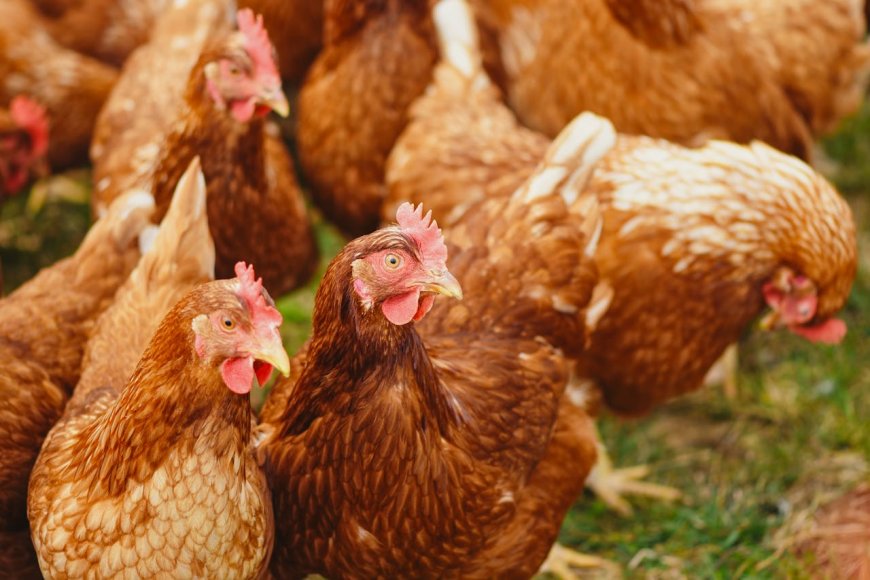Chicken Farming Mistakes: What Farmers Do Wrong and Simple Ways to Fix Them for Better Success

Chicken farming can be a profitable business when done right, but many farmers face challenges that affect their success. Whether you are a professional or a local farmer, understanding common mistakes and knowing how to fix them can make a huge difference in your chicken farming journey. In this article, we’ll explore where farmers often go wrong and offer simple solutions for better farming results.
Common Mistakes in Chicken Farming
- Poor Housing Conditions
- One of the biggest mistakes is not providing proper housing for chickens. Overcrowding, poor ventilation, and lack of cleanliness can lead to diseases and stress among chickens, affecting their growth and egg production.
- Inadequate Feeding
- Many farmers don’t provide balanced feed or overfeed their chickens. Improper nutrition leads to slow growth, low egg production, and health issues.
- Lack of Disease Management
- Some farmers fail to vaccinate their chickens or identify early signs of diseases. This leads to the spread of infections and even large-scale deaths in the flock.
- Improper Brooding Practices
- During the brooding stage, chicks need special care. Many farmers neglect to provide enough heat, water, and food, which affects the survival and growth of the chicks.
- Ignoring Biosecurity
- Farmers often overlook biosecurity measures like cleaning equipment, restricting visitor access, or isolating sick chickens. This results in the spread of diseases and infections.
- Poor Record Keeping
- Farmers who do not track expenses, production rates, or chicken health miss key information that can improve farm performance.
- Neglecting Water Quality
- Chickens need clean, fresh water every day. Some farmers provide dirty or insufficient water, which can lead to dehydration and poor health.
Simple Ways to Fix These Mistakes
Here are some easy-to-follow solutions that can help both professional and local farmers avoid these common mistakes:
| Mistake | Solution |
|---|---|
| Poor Housing | Ensure chickens have enough space, good airflow, and clean bedding. Maintain proper sanitation and prevent overcrowding. |
| Inadequate Feeding | Provide balanced feed based on the chickens’ age and purpose (broilers or layers). Avoid overfeeding by monitoring the quantity. |
| Lack of Disease Management | Vaccinate chickens as recommended. Monitor your flock daily for any signs of sickness, such as coughing or inactivity, and treat diseases early. |
| Improper Brooding | Use heaters or brooders to keep chicks warm. Provide fresh water, nutritious starter feed, and a dry environment for the first few weeks of their lives. |
| Ignoring Biosecurity | Implement strict hygiene practices. Disinfect equipment regularly, limit access to your farm, and quarantine new or sick birds. |
| Poor Record Keeping | Start keeping simple records of feed costs, egg production, flock health, and sales. This will help you identify areas that need improvement. |
| Neglecting Water Quality | Make sure chickens always have access to clean, fresh water. Clean water containers daily to avoid contamination. |
Additional Tips for Successful Chicken Farming
-
Choose the Right Breed
- Depending on whether you want to raise chickens for meat (broilers) or eggs (layers), select breeds that suit your farm's purpose. For meat production, consider fast-growing broilers like Cobb or Ross. For egg production, popular layer breeds like Rhode Island Red and Leghorn are good choices.
-
Start Small
- If you are new to chicken farming, it’s advisable to start with a small flock. This will allow you to learn the basics of chicken care and farm management without investing too much upfront. As you gain experience, you can gradually expand your flock.
-
Practice Sustainable Farming
- Reduce waste by using chicken manure as fertilizer for crops. Rotate your chickens in different areas to avoid overgrazing, which helps maintain soil quality.
-
Monitor Market Trends
- Keep an eye on market prices for chicken meat and eggs. You can time your production to take advantage of higher prices, especially during holiday seasons when demand rises.
Conclusion
Chicken farming can be a successful and rewarding business, but only if the right steps are taken. By addressing common mistakes and following simple, practical solutions, farmers can improve the health and productivity of their chickens. Whether you’re an experienced farmer or just starting out, paying attention to the basic needs of your flock, from proper housing to good hygiene and nutrition, will make all the difference in your success.
By keeping these tips in mind and regularly evaluating your farm’s practices, you can build a profitable and sustainable chicken farming business that thrives for years to come.







